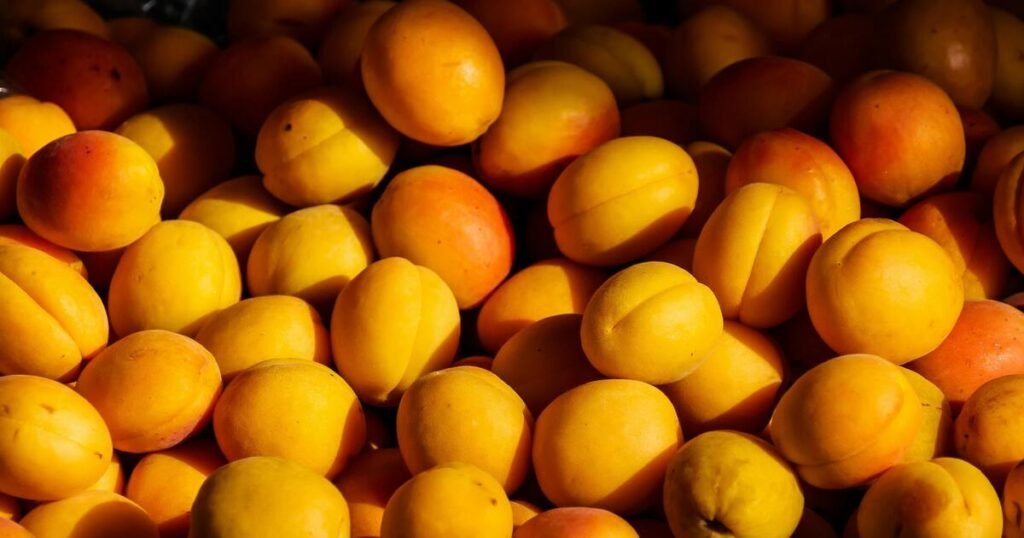The importance of diet in managing kidney health cannot be overstated, and one of the emerging considerations is the potential benefit of apricot for kidney patients. Renal disease requires careful dietary management, with strict limitations on certain nutrients like potassium and phosphorus. In this context, apricot, a nutrient-dense fruit, holds both promise and concern. By delving into its nutritional composition and understanding how it affects kidney patients, we can explore whether apricots can be safely included in a renal-friendly diet.
Apricot for Kidney Patients: Nutritional Profile
Apricot is a small but powerful fruit, containing essential nutrients such as vitamins A, C, E, and K, alongside vital minerals like magnesium, iron, and potassium. This vibrant fruit also boasts a substantial amount of dietary fiber, which supports digestive health—a crucial factor for kidney patients. The low-calorie nature of apricots, combined with their rich content of antioxidants like beta-carotene, makes apricot for kidney patients a topic of great interest. However, the high potassium level often associated with apricots must be handled with care.
1. Antioxidant Power of Apricot for Kidney Patients
One of the critical reasons why apricot for kidney patients is considered is its antioxidant content. Oxidative stress plays a significant role in the progression of kidney disease, and apricots are rich in flavonoids and carotenoids, which neutralize harmful free radicals. These antioxidants reduce inflammation and protect renal cells from further damage, thus potentially slowing the progression of chronic kidney disease (CKD). Regular, controlled intake of antioxidant-rich apricots may offer protective benefits for kidney patients struggling with oxidative stress.
2. Potassium Concerns: Is Apricot for Kidney Patients Safe?
While apricots are full of beneficial nutrients, the high potassium content makes apricot for kidney patients a subject of caution. Kidneys with diminished function struggle to expel excess potassium, leading to hyperkalemia—a dangerous condition where too much potassium builds up in the blood. Given that apricots, particularly dried ones, are rich in potassium, it’s essential for kidney patients to limit their intake. Understanding the balance between enjoying the nutritional advantages of apricots and managing potassium levels is key to safe consumption.
3. Fiber Content in Apricot for Kidney Patients: Enhancing Digestive Health
A vital yet often overlooked aspect of apricot for kidney patients is its fiber content. High-fiber foods like apricots can help improve digestion and prevent constipation, which is commonly seen in kidney patients due to medication or dietary restrictions. Moreover, fiber helps reduce toxin buildup in the body, thereby alleviating some of the stress on the kidneys. Ensuring a healthy digestive system can indirectly support kidney function, making the fiber in apricots a valuable asset for kidney patients.
4. Managing Phosphorus Levels with Apricot for Kidney Patients
Another factor to consider when discussing apricot for kidney patients is phosphorus. Elevated phosphorus levels can lead to complications such as bone disease and calcification of the arteries. Fortunately, apricots contain relatively low levels of phosphorus compared to other fruits, making them a safer option in this regard. Nevertheless, portion control remains important, as an excessive intake could still contribute to phosphorus buildup. Regular blood monitoring is crucial for determining the exact impact of apricot on phosphorus levels.
5. Apricots and Kidney Stone Prevention
One of the most significant benefits of apricot for kidney patients is their potential to reduce the risk of kidney stones. These painful conditions often occur when certain minerals, such as calcium and oxalate, crystallize in the kidneys. Apricots are low in oxalate and can help to prevent the formation of kidney stones.

6. Apricot Hydration and Kidney Function
Hydration plays a vital role in maintaining kidney health. Apricots, with their high water content, can contribute to proper hydration, which supports the kidneys in flushing out toxins. The water content in fresh apricots helps to ensure that the kidneys are not overburdened, making apricot a potentially hydrating snack. However, kidney patients often have fluid restrictions, so it is important to balance apricot consumption with the patient’s fluid allowance for the day.
7. Potential Risks of Allergies and Medication Interactions
Although apricot can be a nutritious option, certain individuals may face risks, such as allergies or adverse interactions with medications. Allergies to apricots, though rare, can cause reactions ranging from mild itching to severe anaphylaxis. Furthermore, apricots may interact with medications commonly used by kidney patients, such as blood pressure medications or diuretics. It is essential to consult a healthcare provider before adding apricots to the diet to prevent potential complications.
8. Importance of Portion Control: Safely Enjoy Apricot for Kidney Patients
Portion control is key when considering apricot for kidney patients. Overconsumption of apricots can lead to excessive potassium intake, which can be harmful. Kidney patients should aim to incorporate small, manageable portions of fresh apricots into their diet, avoiding dried apricots or apricot-based products that contain high amounts of sugar or preservatives. By practicing portion control, kidney patients can enjoy the benefits of apricots without risking their health.
Conclusion: Embracing Apricot for Kidney Health
Incorporating apricot for kidney patients offers a range of health benefits, including essential vitamins, fiber, and antioxidant properties. While there are considerations regarding potassium content, apricots can still be a valuable addition to a renal diet when consumed mindfully. By understanding the role of apricots and integrating them thoughtfully into their diet, kidney patients can enjoy a nutritious and flavorful component of their overall health strategy.
You may also like Pineapple for Kidney Stones

Pingback: List of foods that cause constipation -